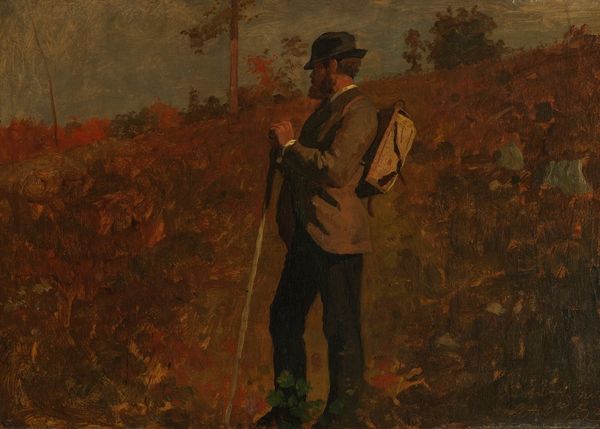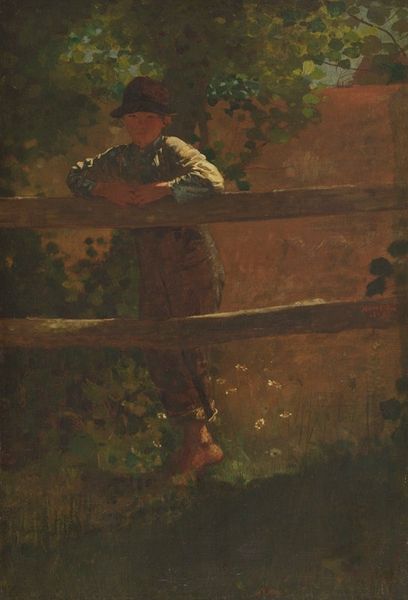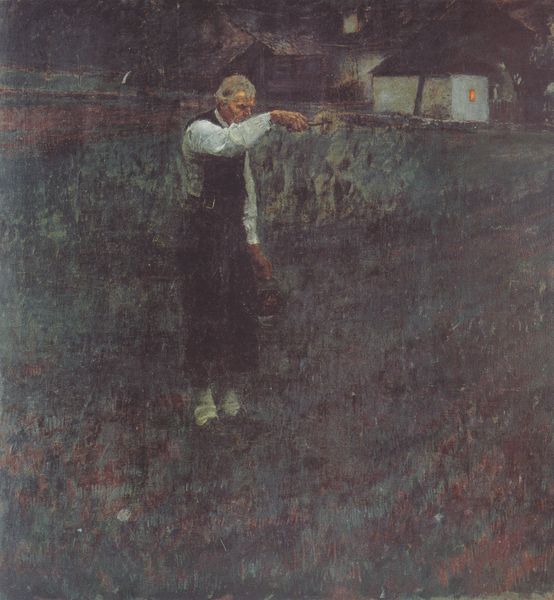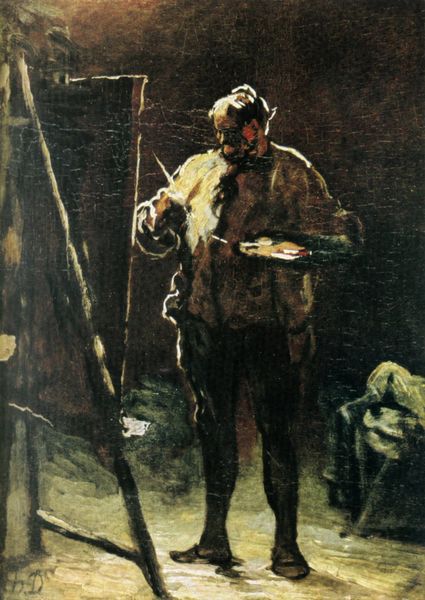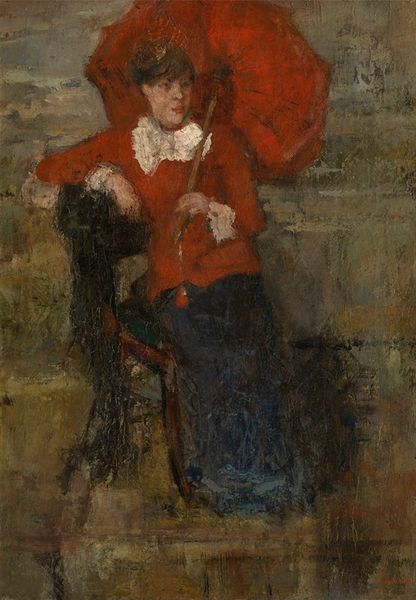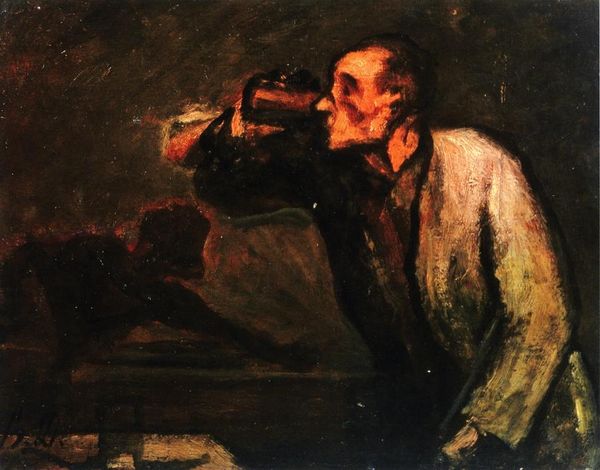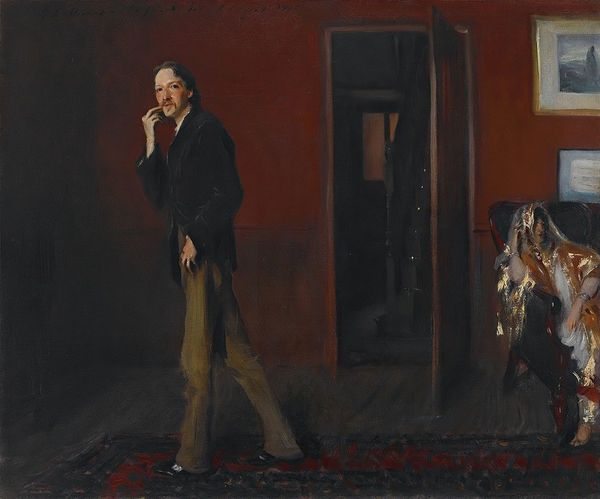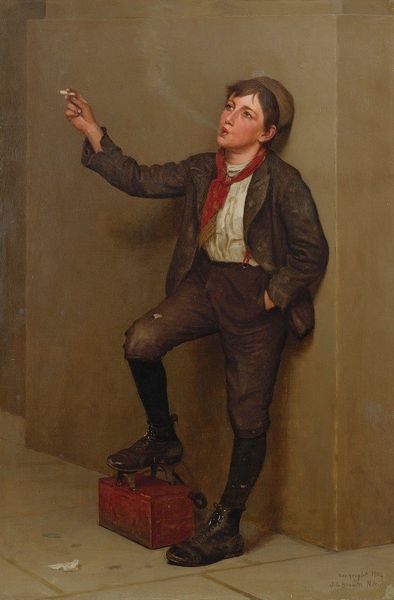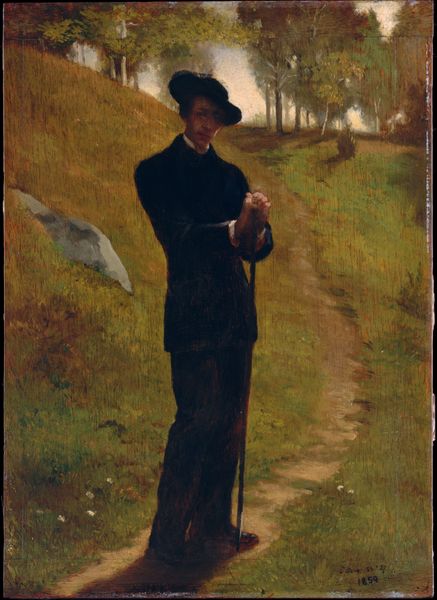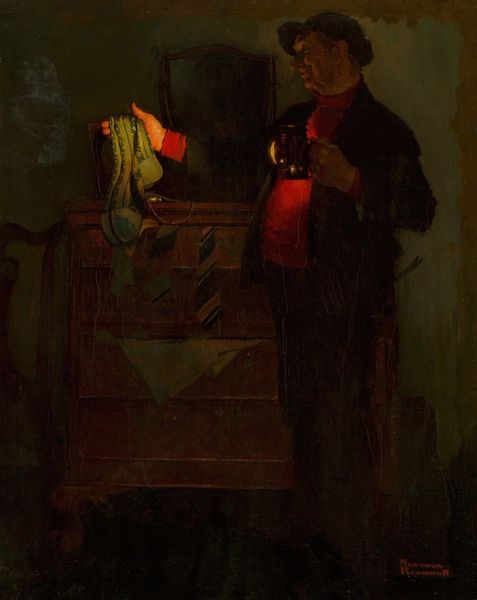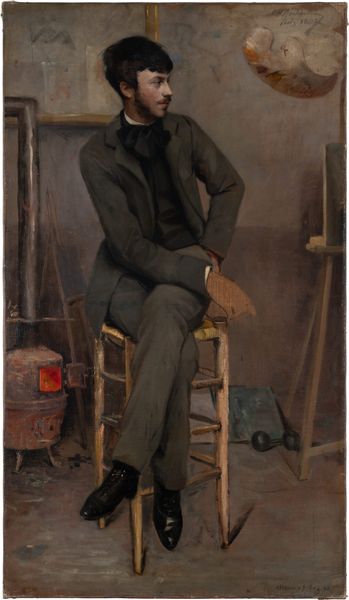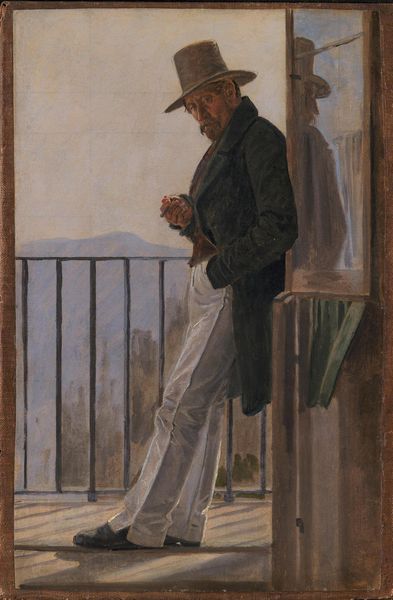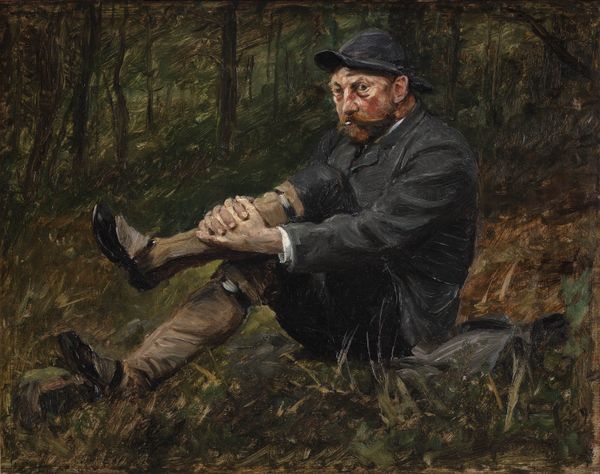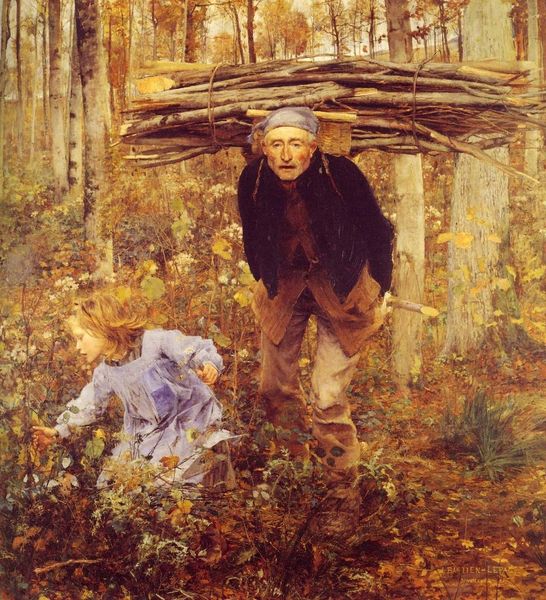
painting, oil-paint
gouache
narrative-art
painting
oil-paint
landscape
figuration
oil painting
romanticism
history-painting
realism
Copyright: Public domain
Curator: Albin Egger-Lienz offers us, perhaps, a glimpse into Tyrolean history with "Ein Abschied in Tirol Im Jahre 1809." Although undated, its thematic resonance points towards that period. Notice how the artist has captured a somber, almost desolate landscape using oil on canvas. Editor: It immediately evokes a sense of quiet devastation. The muted palette feels like looking at memory, faded with time and loss. Is it mourning, defiance, or both that we are seeing? Curator: That's precisely the historical complexity at play here. The year 1809 marks the Tyrolean Rebellion against Napoleonic forces. The solitary figure, kneeling with his rifle, embodies the struggle, the personal cost of war painted in poignant detail. Editor: Absolutely. I'm particularly struck by the figure's traditional attire – the elaborate jacket, the stockings—paired with the symbol of the rifle. It is less about glorious battle and more about how historical narratives are constructed around identity, gender and a sense of place and belonging. Is he saying goodbye, or asking for courage to fight? Curator: It's ambiguous. Egger-Lienz challenges viewers to question the heroic narratives often associated with historical paintings. He’s known to explore this duality throughout his works, often presenting the common person’s role, caught between history and his humanity. Editor: The religious symbolism surrounding the figure, juxtaposed with the gun he’s clasping, highlights an intersectionality of faith, violence, and a patriarchal understanding of protection. Is there a silent critique there, maybe the questioning of violent resistance justified through faith? Curator: I'd say there’s certainly space for that interpretation. Egger-Lienz doesn't give easy answers. He frames the narrative through the eyes of those deeply affected by such historical upheavals. His paintings were controversial within their time, offering narratives that disrupted patriotic and martial celebrations. Editor: That makes sense given what feels like a very intentional rejection of grand historical depiction. This is intimate, internal... it makes you reflect not just on a specific revolt but on the human cost of all resistance, all wars, even. Curator: Precisely. This singular, powerful moment reflects universal themes about history, loss and survival. Editor: Looking at it again, this painting isn't about triumph; it's a visceral engagement with collective memory, challenging us to reassess how we interpret the legacy of conflict and identity in shaping historical context.
Comments
No comments
Be the first to comment and join the conversation on the ultimate creative platform.
